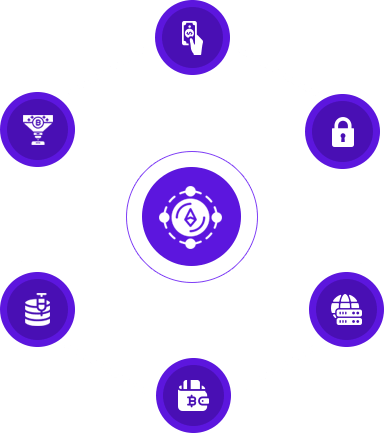Being established in 2014 with 10 years’ experience as an outsourcing company in the worldwide market. We are proud of our reputation for delivering Japanese "Quality" and " from within Vietnam. Every product we create is uniquely designed without any blending. Clients can monitor all activities, track progress, and assess quality throughout the entire implementation process. Moreover, our unwavering commitment to information security ensures that clients always feel completely secure.
Learn more
At PadiTech, we believe that people are our most valuable asset and the cornerstone of sustainable growth. Mutual "Care" and "Respect" are our guiding principles, fostering a collaborative environment where we all progress together.
Aspiration is the flame that leads us forward, driving us to continuously strive for success. It fuels our ambition and keeps us reaching for greater heights.
Discipline provides us with unwavering strength, enabling us to excel in everything from the smallest tasks to the most challenging missions. It is the foundation of our perseverance and commitment to excellence.
We foster an "open" environment that encourages creativity and innovation across all fields. We believe that constant innovation is key to staying ahead and making a meaningful impact.
Currently, many Japanese banks are exploring or implementing Blockchain technology to enhance system security, reduce costs, and improve decentralization efficiency. Alongside the trend of adopting Blockchain, companies in Japan are also leveraging AI technology. AI is frequently applied in areas such as digital advertising, production, service provision, and customer care.

Blockchain applications in gaming have gained significant traction and are rapidly advancing worldwide. By 2025, the integration of Blockchain and AI technologies is projected to experience exponential growth. In Japan, the future of Blockchain technology looks promising due to its robust technological infrastructure and strong government support.
Blockchain technology is a sophisticated database system that enables users to share information within a network. It stores data in interconnected blocks, creating a highly integrated system. Presently, Blockchain is being vigorously advanced in Japan across various sectors, including software development, video games, e-commerce, finance, banking, manufacturing, and retail.
Blockchain technology is rapidly gaining traction, with the International Data Corporation (IDC) predicting substantial growth in blockchain spending from 2018 to 2023. Despite its potential, several challenges hinder its widespread adoption, including inadequate infrastructure, lack of regulatory clarity, and compliance concerns. These obstacles can be effectively addressed by utilizing blockchain development services.
Enhanced Productivity: Leveraging blockchain development services can significantly improve productivity across various business sectors.
Increased Traceability: Blockchain technology is a powerful tool for supply chain management, providing end-to-end traceability of products. This capability enhances efficiency and reduces operational costs.
Improved Transaction Speed: Traditional interbank transactions can be time-consuming. Blockchain technology transforms this process into a 24/7 operation, reducing transaction times to mere seconds.

Public blockchains are decentralized networks that allow anyone to engage, validate transactions, and maintain the blockchain's integrity. Open to the public, these networks enable anyone to join, view, or record transactions.
An NFT, or Non-Fungible Token, is a unique digital asset powered by blockchain technology. NFTs often represent digital art forms such as images, animated videos, music, and more. The term NFT breaks down into:
NFTs operate on blockchain technology, which uses a ledger system to verify the authenticity of both the assets and their owners. This technology introduces a new method of registering ownership of specific properties, including artworks, collectibles, in-game items, music, GIFs, videos, and more. These assets are traded online, with transactions conducted in digital currencies.
A decentralized exchange (DEX) is a peer-to-peer marketplace where crypto transactions occur directly between traders without intermediaries like banks or brokers. Popular DEXs, such as Uniswap and Sushi swap, operate on the Ethereum blockchain, embodying the core crypto principle of enabling direct financial transactions.
In the world of cryptocurrency, a Centralized Exchange (CEX) is an online platform where individuals can buy, sell, and trade crypto assets. These exchanges are owned and operated by private companies and must comply with the laws and regulations of the jurisdictions they serve. To use a CEX, users must sign up and create an account, and most platforms require Know-Your-Customer (KYC) and Anti-Money Laundering (AML) verification.
An E-Wallet, often referred to as an electronic or mobile wallet, significantly enhances the ease of making seamless purchases. Utilizing near-field communication (NFC) technology, mobile wallets allow users to make contactless payments with their mobile devices, tablets, or smartwatches, eliminating the need for physical cards. Unlike digital wallets, where funds stay in the bank account, E-Wallets are preloaded with money, ready to be used for transactions.
Blockchain technology's versatility extends beyond its initial adoption by banks and Fintech companies, making it applicable to numerous industries and accessible to diverse audiences. This adaptability drives the continuous development of new applications and business models. When integrated into various business models, blockchain's decentralized structure plays key roles in business operations, data storage, revenue collection, and company expansion. Blockchain ensures secure and transparent peer-to-peer interactions, data management, and transactions for end users. It also proactively identifies and prevents cybercrime, reinforcing its reputation as a platform offering top-tier cybersecurity. In this discussion, we will explore the most common blockchain business models and their real-world applications.

Provides financial services like lending, borrowing, and trading through smart contracts on blockchain platforms, eliminating the need for traditional banks.

Enhances transparency and traceability in supply chains by recording each step of the production and distribution process on a blockchain.

Converts physical or digital assets into digital tokens on a blockchain, allowing for easier transfer, division, and ownership tracking of assets like real estate, art, or intellectual property.

Uses blockchain to create secure, verifiable, and tamper-proof digital identities, improving privacy and reducing fraud.

Automates and enforces contract terms through self-executing code on a blockchain, reducing the need for intermediaries and increasing efficiency.

Ensures data integrity, security, and accessibility by storing and managing data on a blockchain, useful in healthcare, finance, and government records.

Creates secure and transparent voting processes, reducing fraud and increasing voter trust through blockchain-based voting systems.

Develops applications that run on blockchain networks, offering increased security, transparency, and user control compared to traditional apps.

Provides blockchain infrastructure and services to businesses, enabling them to develop and deploy blockchain applications without needing extensive in-house expertise.

